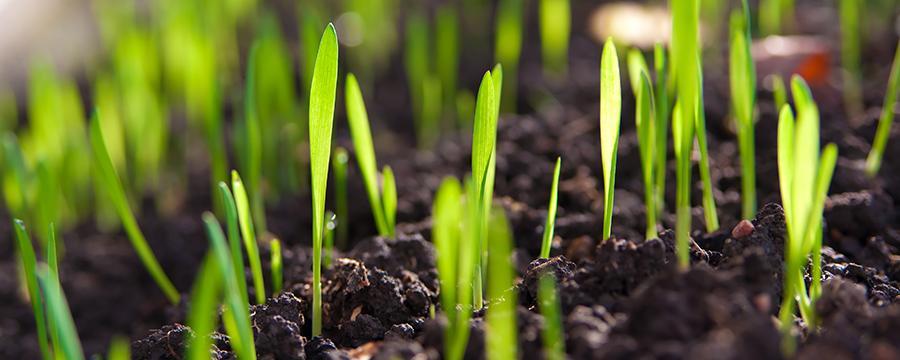Grounds for patience
By George Cladis
Jesus told this parable: "A man had a fig tree planted in his vineyard; and he came looking for fruit on it and found none. So he said to the gardener, 'See here! For three years I have come looking for fruit on this fig tree, and still I find none. Cut it down! Why should it be wasting the soil?' He replied, 'Sir, let it alone for one more year, until I dig around it and put manure on it. If it bears fruit next year, well and good; but if not, you can cut it down.'" Luke 13:6-9
The woman paid me in advance, so I felt more anxious. A recent divorcee, she got the house and he got the "gum-smacking secretary half his age," she said, her eyes lighting like hot coals. She had scrimped and saved to hire a cheap seminarian (me!) to dig up, fertilize, and seed her front yard, and make it grow grass. "So I won’t be an embarrassment to the neighborhood," she said pointing to the chic homes along her manicured street.
I planted; and then, like a recurring bad dream, I passed her house every day. The flat, rolled land lay bald of anything but the beginnings of a crude weed. I pressed my cheek to the ground and scanned for Kentucky blue grass stubble. I pounded the ground ... grow! Grow!
And then I left town for my parents’ house far away.
Returning days later, the messages on my answering machine included one from her. "George! George! Grass! It’s growing! It’s growing! Thank you soooo much!" The message seemed out of proportion to the event, but the emerging lawn had come to symbolize much more: hope.
Something can grow again out of land dug up, turned, dumped with manure, and rolled over. But, it involves patience.
That dreaded word. The cardinal sin of the 21st century is to be boring and slow. We demand the brief newscast, fast report: your worst offense is to waste my time.
Patience. Jesus used agricultural symbols and parables partly to remind us that good things require time. Living things rarely spring up or mature overnight.
Patience. Till the soil of your life and open it to God’s seeding. Let His good things take root. Pour nutrients on your estate.
And then, hurry up and wait. Wait. Pound the ground with your fists, but it will rise in God’s good season.
Patience. Especially after your yard bears the potholes of other times: uprooted vines that once covered and choked the grounds, or stately trees tumbled by violent storms. Remember that God planted the first garden and saw that it was good. God can replant you, too, if you’re open.
Think and Pray
"Be fruitful and multiply," was the first commandment. It means more than babies. It means to let God bring you to fruition. And that takes ... patience.
Lord, let me first thank You for Your patience with me. You are gracious and compassionate, slow to anger and abounding in love. Create in me that same character so that I respond graciously, patiently and lovingly to others. Let Your Spirit produce that fruit in my life, that I would be a blessing to others even as You continue to teach me. Amen.
---------------------------------------
Published by The High Calling. Theology of Work Project Online Materials by The High Calling are licensed under a Creative Commons Attribution 4.0 International License. Dr. George Cladis is Executive Pastor of Liberty Churches in the western suburbs of Boston. He has authored Leading the Team-Based Church: How Pastors and Church Staffs Can Grow Together into a Powerful Fellowship of Leaders (Jossey-Bass, 1999), and is adjunct Assistant Professor in the Fuller Theological Seminary Doctor of Ministry program. George and his wife Martie live in Shrewsbury, Massachusetts, with their rescue dog, Emily.
